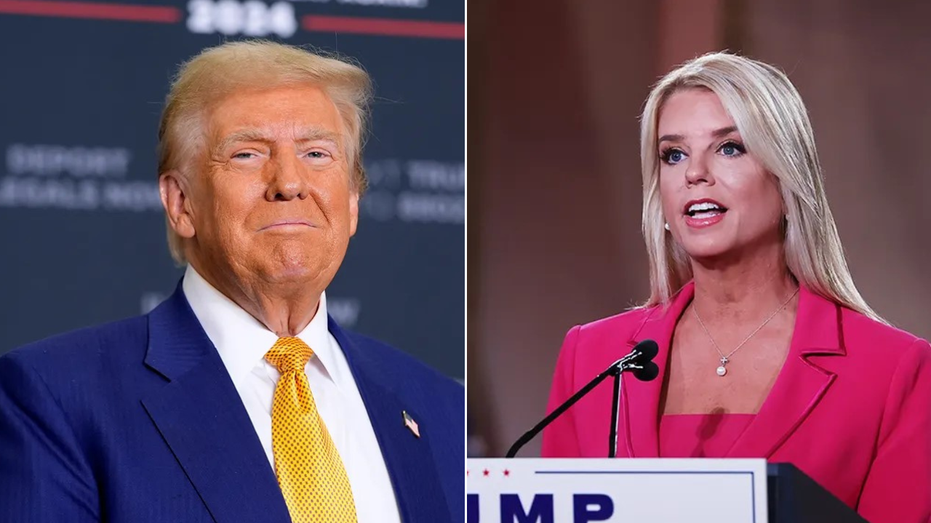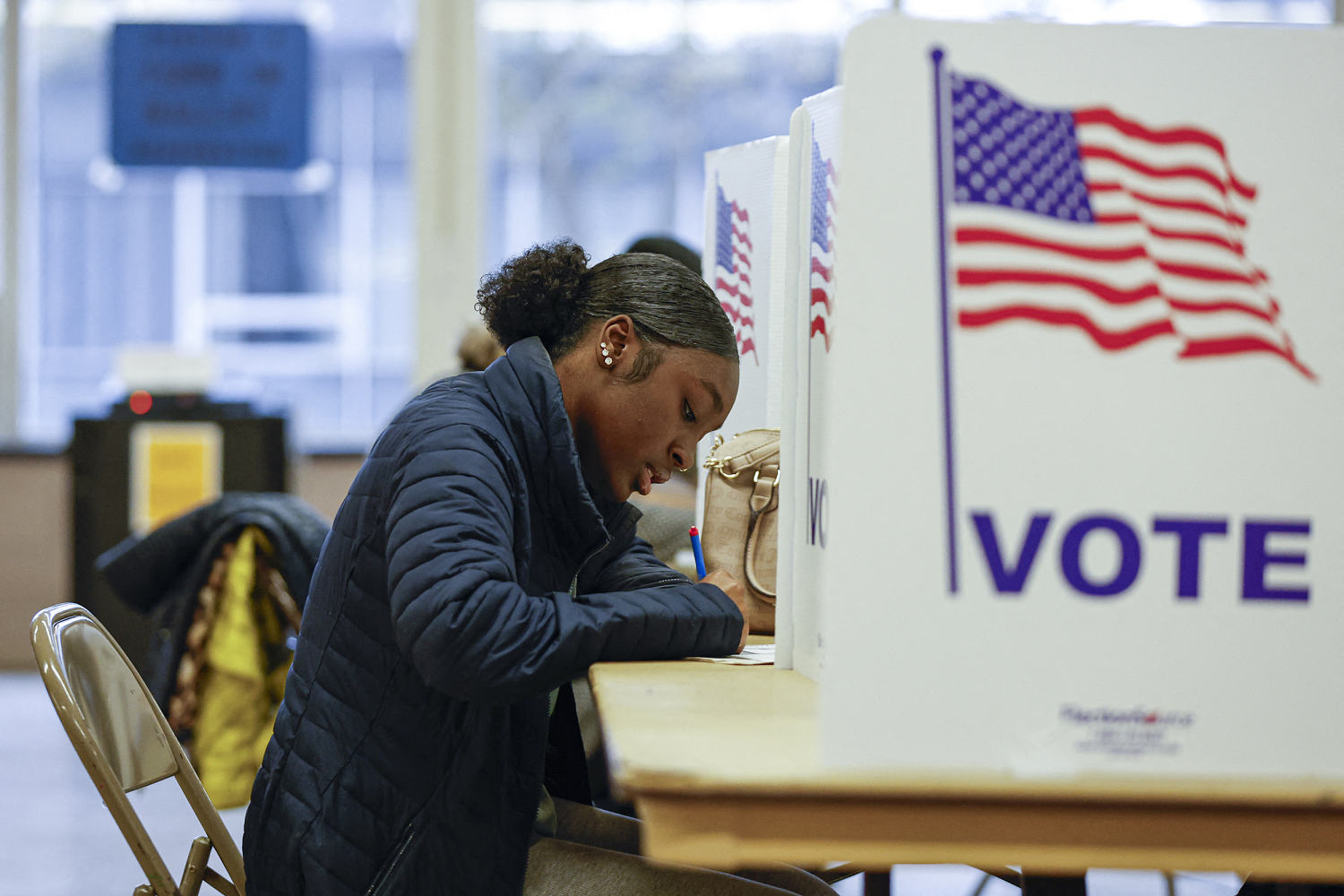Is it newsworthy that Donald Trump’s share of the 2024 presidential vote has fallen below 50 percent?
You wouldn’t think it’s a big deal based on the relatively few headlines triggered by the milestone, which passed quietly last weekend as California and other states continued their glacially slow vote counts.
And maybe that’s as it should be. After all, Trump’s 49.9 percent (for now) is still more than Kamala Harris’ 48.3 percent. When the counting is done, the margin will probably have shrunk even further. No matter: It still earns him 312 electoral votes from a population that also gave his Republican Party control of the House and Senate. He won.

All the same, the numbers might seem a wee bit jarring to anyone who has been listening to Washington’s triumphal Republicans and self-flagellating Democrats — all of whom seem to have internalized a version of the story that involves a romping, stomping Trump triumph.
It’s hard to blame them: Even as the counting progressed, Trump’s victory was described as “resounding” by news organizations ranging from the Associated Press to the The Washington Post to the The New York Times to POLITICO. Others offered “commanding win,” “runaway win” and “dominant victory.”
Say what?
To coin a phrase, we’ve defined dominance down. After years as a 50-50 country, it seems, even a small win gets talked about like a shellacking. Wriggling into office with a puny plurality and less than half the vote in an essentially two-way race used to be considered pretty weak sauce. A squeaker. Why do we now treat a JV-caliber success like some sort of Olympian feat? Following the traumas of 2020, maybe “dominant victory” has come to simply mean a win that doesn’t lead to endless recounts or domestic insurrection.
Washington, please stop this consensus!
This is not to praise the anemic Democratic performance — or question the fact of Trump’s victory. He swept the battleground states, improved his nationwide numbers in places where Republicans usually get wiped out and helped his party narrowly hold the House while taking the Senate. Under our system, that means Trump gets to move into the White House and sign the laws he and his allies push through the legislature. For better or worse, the United States Constitution doesn’t care about margins of victory.
The only thing is, what Trump did this month is a lot like what Joe Biden did four years ago — but with less of the general public on his side. Biden won the vote by about four-and-a-half points, making inroads with GOP demographics and capturing the swing states while his party held the House and retook the Senate by the narrowest possible margin. There was no talk back then of a Biden blowout.
And appropriately so: Biden may have had a popular majority, but it too was a squeaker.

The two winners’ legislative coattails were similarly unimpressive: Biden’s 2020 Democrats retained the House while losing seats, and won the Senate only after a weird Georgia runoff where Trump’s post-election ranting helped the Democrats. Trump’s 2024 Republicans, likewise, have yet to expand their paltry House majority and lost Senate races in at least four states carried by Trump.
In Washington, this kind of comparison can lead to an intense, irritating, unwinnable argument about just whose victory was more impressive — as if “impressiveness” earned the winner any extra powers after inauguration day.
The more interesting question is what this big-win fable is likely to do to our political calculus going forward.
Look on social media and you’ll find folks chalking the blowout narrative up to media gullibility, or worse. Trump, the old real estate salesman, inevitably calls any house a castle and any win a landslide. Once again, they say, people who ought to know better have bought into the hucksterism.
In fact, I’d add some different explanations. Part of it is myopia: The people who watch politics most closely spent the campaign season hyper-focused on a few swing states and a few bellwether demographics. Trump exceeded expectations on all of them. The close attention to officially important races created a perception that dims when you pull back the camera to look at the whole country.
A bigger part of it may be psychology. After 18 months of covering the endless campaign, it’s only human to justify the emotional investment by finding a sweeping verdict in the results — even if it’s not there. Merely assigning control of the United States government for the next four years feels insufficient.

The irony of it all, though, is that the false sense of clarity about the results may actually be a good thing for the Democrats.
Instead of wondering whether some discrete tactic or specific demographic could have put them over the top, the shell-shocked party appears destined to do a deep dive on its long-festering problems: How did the historic party of the little guy come to lose the working class? What’s the cost of placating "the groups," as Democrats call their often identity-based activist organizations? Is it time to rethink their generation-long embrace of neoliberalism?
Truth be told, these are conversations Democrats needed to have even before they stunk it up on Election Day. But insiders might be less bent on self-examination if the smart set had spent the last two weeks describing an electoral close call instead of a Trumpian walk-over.
On the GOP side, I think the landslide narrative is going to be a more mixed bag.
Yes, Republicans get to feel like winners, which is fun. On the other hand, even in this moment of triumph, they’re really not that popular. A narrative of 2024 that depicted them wheezing into office with an unimpressive vote count might trigger some conversations they need to have, too: Why is a party that promises lower taxes alienating so many of the successful folks who benefit from lower taxes? How are they going to avoid bungling the next national emergency when they’re perpetually hostile to experts? Are extremely online staff bros the GOP version of annoying postcollegiate Democratic aides, a cohort that will soon damage their bosses’ brand?

If Trump — and the slim legislative majorities who take office with him — wants to see the downside of learning the wrong lesson, they need only to look at the folks they’re about to replace.
Biden and the Democrats may not have claimed a landslide, but the message they took was that the administration needed to satisfy the social-justice activists who marched in 2020, avoid looking like squishy centrists and dismiss questions about inflation or age as feckless media parroting of GOP talking points. A lot of those decisions are now being blamed for the 46th president’s unpopularity.
By actually describing the election in all of its unsatisfying shades of gray, the chattering class would be doing the GOP a favor. Far more popular presidents than Trump have been done in by hubris about election results.
And that’s why the wrongheaded Beltway certitude is also damaging to the general public.
Trump is already using the idea of his being the era’s dominant political figure to exert more control over his Republican legislative allies. Demanding that the Senate allow recess appointments is the move of a big-time winner, not a guy who couldn’t even win half of American voters. For a chief executive, it’s always empowering when people buy the idea that you’re a juggernaut. And for this chief executive, with his disregard for old-line norms and his campaign talk of retribution against enemies — and an array of less authoritarian ideas for radical change — it’s especially dangerous.

Sure enough, here’s an op-ed this week from Elon Musk and Vivek Ramaswamy outlining their hope to fire public servants by cutting the budget without congressional sign-off, something that’s currently illegal: “On Nov. 5, voters decisively elected Donald Trump with a mandate for sweeping change, and they deserve to get it.”
For analysts reveling in clear election results — or Democratic reformers embracing the need for a wholesale re-think — it’s pretty hard to push back on these bogus claims of a sweeping mandate if you’re busy echoing those claims.
The presidency comes with enough legal authority by itself. Why assign any small-margin winner the moral authority that comes with a popular mandate? For people in the business of reporting results and analyzing outcomes, it may feel satisfying to claim clarity after months of watching the battle. The only problem is it’s not true.
.png)















 English (US)
English (US)